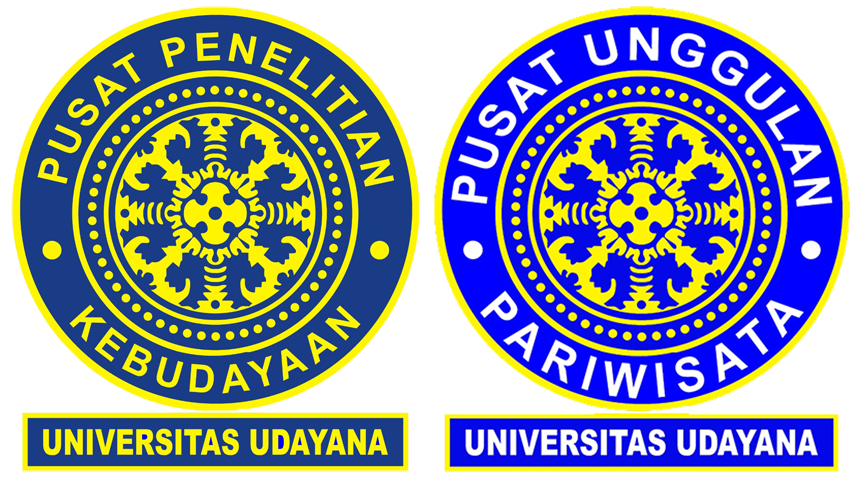Building Mini Narratives of Tourism in Bali as Innovations on Post-Pandemic Era: A Postmodernism Paradigm
Abstract
The pandemic negatively impacted all aspects of human life, including tourism, which was even the worst affected, especially in Bali. This causes the legitimacy of the grand narrative of tourism to be delegitimized. This study aims to propose a paralogical idea, i.e. to build a mini-narrative as an innovation to overcome the fading legitimacy of tourism due to the pandemic. The deconstructive qualitative method is applied with heuristic and hermeneutic reading methods. Data were taken from texts contained in print media and non-print media employing observation, recording, and documentation, then analysed according to the research design by applying the theory of postmodernism. The results of the analysis show that the four forms of mini-narrative which are representing the characteristic of postmodernism namely appreciating nature, rising marginal, lessening idolization, and developing consciousness can be adopted as the concept of innovation in overcoming the fading legitimacy of tourism in the post-pandemic era.
Downloads
References
Agger, B. (2003). Teori Sosial Kritis, Kritik, Penerapan dan Implikasinya. Kreasi Wacana.
Ahimsa-Putra, H. (2009). Paradigma Ilmu Sosial-Budaya; Sebuah Pandangan. Makalah dalam Kuliah Umum Paradigma Penelitian Ilmu-Ilmu Humaniora. Universitas Pendidikan Indonesia.
Antara, M., & Sumarniasih, M. S. (2017). Role of Tourism in Economy of Bali and Indonesia. Journal of Tourism and Hospitality Management, 5(2). https://doi.org/10.15640/jthm.v5n2a4
Azeez, Y. A. el. a. (2015). No Title. International Conference on Multidisciplinary Trends in Academic Research” (GTAR- 2015).
Derrida, J. (1997). Of Grammatology. John Hopkins University Press.
Emanuel, W. (2006). Perenialisme: Kritik atas Modernisme dan Postmodernisme. Kanisius.
Fensi, F. (2020). Mengendus Patologi Media Sosial dari Perspektif Filsafat Modernisme. Commed: Jurnal Komunikasi Dan Media, 4(2), 158–169. https://doi.org/10.33884/commed.v4i2.1657
Garna, J. . (1999). Pendekatan Penelitian: Pendekatan Kualitatif. Primaco Akademika.
Ghazali, A. M., & Effendi, D. (2009). Merayakan kebebasan beragama: bunga rampai menyambut 70 tahun Djohan Effendi. Penerbit Buku Kompas.
Ilham, I. (2018). Paradigma Post-Modernisme; Solusi Untuk Kehidupan Sosial? Jurnal Sosiologi USK, 12(1), 1–23. https://jurnal.unsyiah.ac.id/JSU/article/view/11693/9271
Kahraman, A. D. (2015). Relationship of Modernism, Postmodernism and Reflections of it on Education. Procedia - Social and Behavioral Sciences, 174, 3991–3996. https://doi.org/10.1016/j.sbspro.2015.01.1146
Kurniawan, E. D. (2022). Postmodernism of Remy Sylado’s Menunggu Matahari Melbourne. English Language & Literature International Conference. https://jurnal.unimus.ac.id/index.php/ELLIC/index
Leahy, L. (1985). Manusia Sebuah Misteri Sintesa Filosofis Makhluk Paradoks. Gramedia.
Lie, H. D. (2009). Abad Pertengahan, Modernisme & Postmodernisme. Jurnal Teologi Stulos. https://www.academia.edu/38587556/Abad_Pertengahan_Modernisme_and_Postmodernisme
Lyotard, J. F. (1984). The Postmodern Condition: A Report on Knowledge. Manchester University Press.
Maksum, A. (2014). Pengantar Filsafat: Dari Masa Klasik Hingga Postmodernisme. Ar-Ruzz Media.
Muhlisin. (2000). Postmodernisme dan Kritik Ideologi Ilmu Pengetahuan Modern. Jurnal Okarra, 1(1).
Ratna, N. . (2004). Teori, Metode, Dan Teknik Penelitian Sastra (Dari Strukturalisme Hingga Postrukturalisme, Perspektif Wacana Naratif). Pustaka Pelajar.
Ratna, N. K. (2011). Antropologi Sastra, Peranan Unsur-unsur Kebudayaan dalam Proses Kreatif. Pustaka Pelajar.
Ritzer, G. (2010). Teori Sosial Postmodern. Kreasi Wacana.
Kumala Dewi, P. R., & Suwecawangsa, A. P. (2022). Implementasi Fair Trade dalam Perdagangan Komoditas Kacang Mete dari Bali Timur. Jurnal Kajian Bali (Journal of Bali Studies), 12(1), 302. https://doi.org/10.24843/JKB.2022.v12.i01.p15
Setyari, N. P. W., Widanta, A. A. B. P., Sarjana, I. M. B., & Gupta, A. A. A. C. (2022). Leading Sectors that Drive the Economy of Bali during the COVID-19 Pandemic. Jurnal Kajian Bali (Journal of Bali Studies), 12(1), 280. https://doi.org/10.24843/JKB.2022.v12.i01.p14
Sumarni, L. (2018). Social Media Construction in the Post Modernist Era. Malaysian Journal of Social Sciences and Humanities (MJSSH), 3(1), 45–51.
Tohidi, H., & Jabbari, M. M. (2012). The important of Innovation and its Crucial Role in Growth, Survival and Success of Organizations. Procedia Technology, 1, 535–538. https://doi.org/10.1016/j.protcy.2012.02.116
Vlados, C., Koutroukis, T., & Chatzinikolaou, D. (2021). Change Management, Organizational Adaptation, and Labor Market Restructuration (pp. 1–21). https://doi.org/10.4018/978-1-6684-3374-4.ch001
Data Sources
(POS BALI, Tuesday 16 June 2020) Edition 2309/Year VI page 1)
(POS BALI, Saturday 4 December 2021) Edition 2730/Year VIII page 1 and 11)
Suaraharianrakyat.com (https://www.suaraharianrakyat.com/selain-pariwisata-bali-akan-kembangkan-sektor-pertanian-dan-industri/)

This work is licensed under a Creative Commons Attribution 4.0 International License.



















